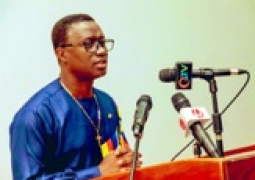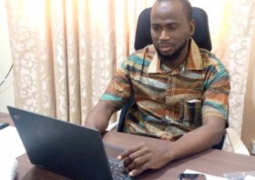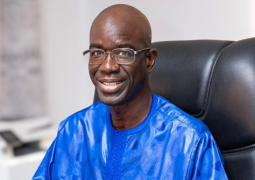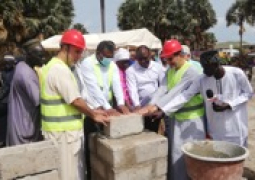
The visit basically was meant to expose journalists to GIRAV intervention sites across the country as well as to assess some of the successes registered and challenges faced by beneficiaries.
GIRAV is a five-year project, which seeks to boost agricultural production and productivity through the promotion of climate-smart agriculture, use of appropriate technologies and innovation, as well as enhanced water management.
In view of that, the project supported food and seed insecure farmers with an assortment of climate smart seeds and other inputs worth over twenty one million Dalasis for the current cropping season. Hence the monitoring visit to assess the outcome.
The first port of call was Ndofan in Lower Nuimi, NBR. There, the team visited Abdul Aziz Marong, a renowned maize farmer supported by GIRAV.
Marong thanked the project while citing numerous benefits derived from his farm.
The delegation later visited Wally Ndong, a local maize farmer in Kerr Ngorr, Jokadou and Fatou Ceesay, a renowned rice farmer in Jokadou Tambana before wrapping up the day with a visit to Toroba in Lower Baddibou.
At various farms, beneficiary farmers explained the impacts of GIRAV on their livelihoods, further acknowledging some of the success stories derived from the five-year project.
The team also visited Central River Region north, where they visited a farm belonging to one Modou Joof.
Joof shared with the delegation how the project has impacted his life in ensuring food and nutrition security.
The seeds given by GIRAV, he added, are early maturing and drought resistant.
Assan Njie, an agriculture Extension officer in Lower Saloum, commended the project for the foresight in empowering local farmers.
The delegation also visited rice field in Jaylan in Nianija owned by one Muhamned Drammeh, who expressed gratitude to the government and the World Bank for conceiving and implementing the GIRAV project.





